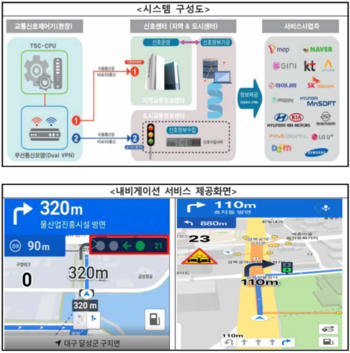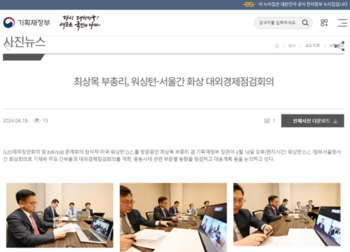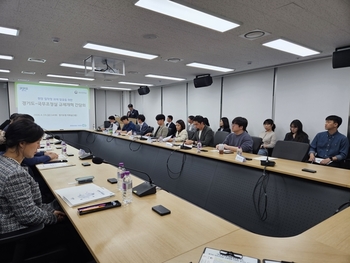[PRNewswire] PwC 가족기업 설문 조사,
온라인팀 | 입력 : 2021/02/16 [09:49]
(런던 2021년 2월 16일 PRNewswire=연합뉴스) 가족기업 2천801곳의 소유주를 대상으로 진행한 새로운 글로벌 설문 조사에 따르면, 작년 한 해 동안 기업이 사회와 환경의 요구를 충족하는 방식을 변화시켜야 했던 것에 반해, 가족 소유 기업은 이러한 변화에 뒤처질 위험이 높은 것으로 나타났다.
응답자의 절반 이상(55%)은 자신의 기업이 지속가능성을 주도할 가능성이 있다고 본 반면, 명확한 전략을 보유하고 있다고 답한 응답자는 37%에 불과했다. 유럽과 미국 기업은 지속가능성을 우선시하는 전략적 노력 측면에서 아시아 기업에 뒤처지는 것으로 나타났다. '지속가능성을 모든 일의 핵심에 둔다'고 응답한 기업은 미국이 23%, 영국이 39%였던 것에 비해, 중국 본토는 응답자의 79%, 일본은 78%였다. 더 큰 기업과 후세대가 소유한 기업도 지속가능성에 더 큰 중점을 두는 추세에 역행하고 있는 것으로 나타났다.
가족 소유 기업이 사회에 대한 책임을 인식할 가능성이 높음에도 불구하고, 지속가능성을 수용하기를 꺼리는 셈이다. 가족기업의 80% 이상이 적극적인 사회적 책임 활동에 참여했으며, 71%는 팬데믹 기간에 최대한 많은 직원을 유지하려는 노력을 보였다. 지속가능성 수용을 꺼리는 것은 경제 비관론 때문인 것은 아니다. 팬데믹에도 불구하고 매출 감소를 예상한 곳은 절반 미만(46%)뿐이었으며, 조사 응답자는 2021년과 2022년에 사업의 지속적인 성장 능력에 대해 낙관하는 것으로 나타났다.
문제는 이들 기업이 사회 대응 방식에 대해 여전히 구시대적 개념을 갖고 있다는 점이다. 미국 응답자의 76%, 영국 응답자의 60%는 ESG 문제에 대한 전략적 접근보다는 박애주의적 이니셔티브를 통한 기업의 직접적인 기여에 중점을 두고 있다. 또한, 가족기업은 ESG를 상업적 성공을 위한 장기적 계획의 중심에 두도록 투자자의 압박을 받고 있는 여타 상장기업에 비해 투자자의 압력으로부터 다소 고립된 실정이다.
PwC의 글로벌 패밀리 비즈니스 리더(Global Family Business Leader)인 Peter Englisch는 다음과 같이 언급했다.
"전 세계적으로 가족기업이 더 광범위한 사회적 목적에 대한 강력한 의지를 갖고 있다는 것은 분명하다. 그러나 지속가능성과 광범위한 ESG 문제에 대한 의미 있는 영향력을 입증할 것을 요구하는 고객, 대출기관, 주주 및 심지어 직원으로부터의 압력이 점점 높아지고 있는 실정이다. 많은 상장기업이 대응에 나서고 있는 반면, 이번 조사에서 가족기업은 여전히 사회적 공헌에 대해 더 전통적인 접근 방식을 취하고 있는 것으로 나타났다."
"가족기업은 변화하는 기대에 부응해야 하며, 이를 따르지 않으면 잠재적인 비즈니스 위험에 노출된다. 이는 단순히 선행의 약속을 말하는 것이 아니라, 경제와 사회의 더 나은 회복을 지원하는 데 있어 기업의 가치와 목표에 대한 명확한 의식을 보여주는 의미 있는 목표를 설정 및 보고하는 것이다."
성장
조사에 따르면, 가족기업은 팬데믹을 비교적 잘 견뎠다. 팬데믹에도 불구하고, 매출 감소를 예상한 응답자는 절반 미만(46%)이었다. 응답자들은 2021년과 2022년에도 사업을 버티며 지속할 수 있는 능력에 대해 낙관적이었다.
디지털 전환에 뒤처지는 가족기업
비록 가족기업의 80%가 직원의 재택근무를 통해 코로나19 팬데믹의 도전에 적응했음에도 불구하고, 디지털 전환과 관련된 전반적인 강점에 대한 우려는 여전하다.
응답자의 62%는 디지털 기능이 '강하지 않다'라고 답했으며, 19%는 디지털 전환이 여전히 진행 중이라고 응답했다.
그러나 여기에는 분명한 세대 차이가 있다. 스스로를 디지털 강자로 표현하는 기업의 41%가 3세대 또는 4세대이며, 다음 세대는 디지털 강자 기업의 46%에서 더 많은 역할을 수행했다.
이에 대해, Peter Englisch는 다음과 같이 설명했다.
"가족기업이 뒤처지고 있다는 것은 우려할 일이다. 강력한 디지털 역량을 갖출 때, 민첩성과 성공이 가능하며, 이는 지속가능성에 대한 열정에서도 마찬가지다."
"기업은 디지털 여정의 우선순위를 정할 때, 다음 세대의 경험과 새로운 통찰력을 어떻게 활용할 수 있을지 고려해야 한다."
거버넌스 격차
가족기업은 높은 수준의 신뢰, 투명성 및 의사소통 역량을 갖추고 있지만, 특히 이 조사에서는 가족기업의 전문적인 거버넌스 구조의 이점을 강조한다. 응답자의 79%는 일부 형태의 거버넌스 절차나 정책이 마련돼 있다고 답한 반면, 중요한 영역에 관해서는 수치가 급격히 감소하는 것으로 나타났다. 4분의 1 정도만이 정관이나 규약을 가지고 있으며, 분쟁 해결 메커니즘을 구축했다는 응답자는 15%에 불과했다.
이에 대해, Peter Englisch는 다음과 같이 언급했다.
"가족 간의 화합은 결코 당연한 것으로 여겨져서는 안 된다. 이는 비즈니스 전략 및 운영 결정에 적용되는 것과 동일한 중점과 전문성을 갖추고 작업 및 계획돼야 한다."
"가족기업 승계에 대한 전 세계 규제 당국의 우려가 커지고 있다. 특히 1세대, 2세대 또는 3세대 기업의 3분의 1이 향후 5년 이내에 다음 세대가 대주주가 될 것으로 예상된다."
"따라서, 기업이 장기적으로 안정성과 연속성을 보장할 수 있는 공식적인 프로세스를 갖추는 것이 매우 중요하다."
편집자 주
1. 가족기업 설문 조사(Family Business Survey)는 웹사이트 https://www.pwc.com/familybusinesssurvey에서 확인할 수 있다.
2. 이 보고서는 2020년 10월 5일부터 12월 11일까지 87개 지역의 가족기업 리더 및 의사 결정권자를 대상으로 진행된 2천801건의 인터뷰를 바탕으로 작성됐다.
PwC 소개
PwC는 사회의 신뢰 구축 및 중요한 문제 해결을 목표로 한다. PwC는 품질 보증, 자문 및 세금 서비스를 제공하는 회사 네트워크로, 155개국에 걸쳐 284,000명 이상의 직원을 보유하고 있다. 자세한 내용을 확인하고 중요한 정보를 제공하려면 웹사이트 www.pwc.com을 방문한다.
PwC는 PwC 네트워크 또는 하나 이상의 회원사를 말하며, 각 회사는 별도의 법인이다. 자세한 내용은 www.pwc.com/structure를 참조한다.
(c) 2021 PwC. All rights reserved.
로고- //mma.prnewswire.com/media/1121790/PWC_Logo.jpg
PwC Logo
문의:
David Bowden
Global Communications Manager | PwC
모바일: +44 (0)7483365049
이메일: david.bowden@pwc.com
출처: PwC
Family businesses risk missing the mark on ESG - PwC Family business survey
LONDON, Feb. 16, 2021 /PRNewswire/ -- In a year where business has had to transform the way it meets the needs of society and the environment, family owned businesses risk falling behind, according to a new global survey of 2,801 family business owners.
While more than half (55%) of respondents saw the potential for their business to lead on sustainability, only 37% have a defined strategy in place. European and American businesses are lagging their Asian counterparts in their commitment to prioritising sustainability in their strategy. 79% of respondents in mainland China and 78% in Japan reported 'putting sustainability at the heart of everything we do' compared to 23% of US and 39% in the UK. Larger businesses and those owned by later generations also buck the trend, with greater focus on sustainability.
This reluctance to embrace sustainability comes despite the fact family owned businesses are highly likely to see a responsibility to society. Over 80% engage in proactive social responsibility activity, and 71% sought to retain as many staff as possible during the pandemic. Nor is it a function of economic pessimism - less than half (46%) expect sales to fall despite the pandemic and survey respondents felt optimistic about their business' abilities to withstand and continue to grow in 2021 and 2022.
Instead, the issue is an increasingly out-of-date conception of how businesses should respond to society, with 76% in the US and 60% in the UK placing greater emphasis on their direct contribution, often through philanthropic initiatives, rather than through a strategic approach to ESG matters. Family businesses are also somewhat insulated from the investor pressure that is currently pushing public companies to put ESG at the heart of their long term plans for commercial success.
Peter Englisch, global family business leader at PwC says,
"It is clear that family businesses globally have a strong commitment to a wider social purpose. But there is a growing pressure from customers, lenders, shareholders and even employees, to demonstrate a meaningful impact around sustainability and wider ESG issues. Many listed companies have started to respond but this survey indicates that family businesses have a more traditional approach to social contribution.
"Family businesses must adapt to changing expectations and, by failing to do so, are creating a potential business risk. This is not just about stating a commitment to doing good, but setting meaningful targets and reporting that demonstrate a clear sense of their values and purpose when it comes to helping economies and societies build back better."
Growth
The survey suggests family businesses have weathered the pandemic relatively well. Less than half (46%) expect sales to fall despite the pandemic and survey respondents felt optimistic about their business' abilities to withstand and continue to grow in 2021 and 2022.
Family business lagging on digital transformation
Even though 80% of family businesses adapted to the challenges of the COVID-19 pandemic by enabling home working for employees, there are also concerns about their overall strength when it comes to digital transformation.
62% of respondents described their digital capabilities as 'not strong,' with a further 19% describing it as a work in progress.
Yet here there are clear generational differences: 41% of businesses that describe themselves as digitally strong are 3rd or 4th generation, and Next Gens have taken an increased role in 46% of digitally strong businesses.
Peter Englisch says,
"It is a concern that family businesses are lagging behind the curve. There is clear evidence that having strong digital capabilities enables agility and success and that they have a similar enthusiasm for sustainability
"Businesses should consider how they can engage the experience and fresh insight of Next Gens when it comes to prioritising their digital journey."
The governance gap
While family businesses report good levels of trust, transparency and communication, the survey highlights the benefits of a professional governance structure. While 79% say they have some form of governance procedure or policy in place, the figures fall dramatically when it comes to important areas: just over a quarter state they have a family constitution or protocol, while only 15% have established conflict resolution mechanisms.
Peter Englisch says,
"Family harmony should never be taken for granted - it's something that must be worked on and planned for, with the same focus and professionalism that's applied to business strategy and operational decisions.
"There are growing concerns from regulators around the world about family business succession, especially with a third of 1st, 2nd or 3rd generation businesses expecting the next generation to become majority shareholders in the next five years.
"It is therefore vitally important that businesses take a lead on ensuring they have formal processes in place they can ensure stability and continuity in the long run."
Notes to editors
1. The Family Business Survey is available to read here: https://www.pwc.com/familybusinesssurvey
2. The report is based on 2,801 interviews conducted with family business leaders and decision-makers across 87 territories between 05 October and 11 December 2020
About PwC
At PwC, our purpose is to build trust in society and solve important problems. We're a network of firms in 155 countries with over 284,000 people who are committed to delivering quality in assurance, advisory and tax services. Find out more and tell us what matters to you by visiting us at www.pwc.com.
PwC refers to the PwC network and/or one or more of its member firms, each of which is a separate legal entity. Please see www.pwc.com/structure for further details.
(c) 2021 PwC. All rights reserved.
Contact:
David Bowden
Global Communications Manager | PwC
m: +44 (0)7483365049
e: david.bowden@pwc.com
Logo - //mma.prnewswire.com/media/1121790/PWC_Logo.jpg
PwC Logo
Source: PwC
[편집자 주] 본고는 자료 제공사에서 제공한 것으로, 연합뉴스는 내용에 대해 어떠한 편집도 하지 않았음을 밝혀 드립니다.
(끝)
출처 : PRNewswire 보도자료 <저작권자 ⓒ 경기도민신문 무단전재 및 재배포 금지>
|
|























































































































